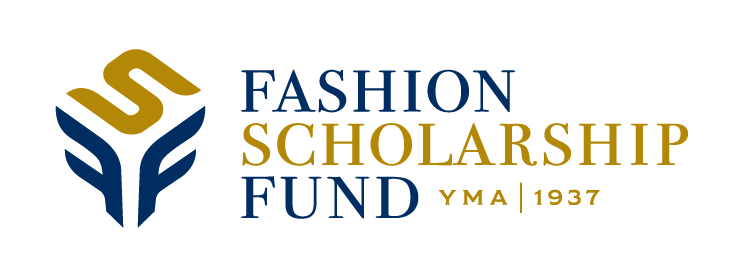Debra Malbin, Founder and President of Executive Recruiting Firm, Debra Malbin Associates, hosted a breakfast with FSF Scholars to discuss careers in the fashion industry, share interview tips, and provide Scholars with personalized resume feedback. She has been involved with the Fashion Scholarship Fund for over 25 years, serving on the Board of Governors, Executive Committee and as co-President in 2014. She has helped develop the careers of candidates at all levels, from college students to top level retail executives.
Debra kicked off the breakfast by telling Scholars about her own career path, beginning with her position as buyer at Bloomingdale's after graduating with a business degree from the University of Florida. After leaving Bloomingdale’s, Debra was recruited to work at Oxford Industries where she became Group President of a men's branded division, followed by R.E.N.N.Y., a women's private label business. In 1996, Debra founded her own Executive Recruiting Firm, Debra Malbin Associates, which facilitates companies in finding the right talent for their organizations. Debra is well-versed in all areas of the industry, having worked both in buying and in sales, in entry-level and executive roles. This has allowed her to place candidates in jobs across many sectors, helping them reach their career goals.
Debra provided Scholars with a helpful chart detailing job positions in the fashion industry, noting the responsibilities for each position and the necessary skill sets, characteristics and interests best fit for each role.
Words of Wisdom - Interviewing Tips
Debra stressed the importance of making a good first impression by having a firm handshake and looking those you meet in the eye. She advised Scholars to bring several copies of their resume to an interview, since you never know how many people will be at the meeting. Debra then shared her formatting tips and looked at Scholars’ resumes individually, making suggestions for improvement, as well as tips for the interviewing process.
Do your research. “Find out more about the company online. Then go in the store if you can. You will stand out if you can offer perspective beyond what someone can read on the internet. When you walk in, you need to know who you’re interviewing with—it’s really important.”
Resumes are about achievement. “List what you accomplished, it’s not just about what you did day-to-day.”
Personalize your portfolio to the company where you’re interviewing. “When you're interviewing for a company you want to have some semblance to that company.”
Be able to answer the “why” questions. “Have answers prepared.”
Be prepared for rejection. “Leave off on good terms because the interviewer could call you back in the future for a more suitable opportunity.”
Q&A
Q: “How do you do now much time you have to make a decision once you have a job offer?”
A: “They’ll tell you. If you’re at the point where they’re giving you a job or hiring you, they would probably say to you we need an answer by a specific date. If they don’t for some reason, you might just ask when they need an answer. It’s fine to say ‘I need to think about it’ but you should give an answer in a timely fashion.”
Q: “How long should you stay at a job before going somewhere else?”
A: “A first job should be at least two years or more. In a career lifetime, you should have no more than eight jobs. It’s also not best to stay in the same job your whole life. If something happens and the company closes, you’ll have a hard time finding something else.”
Q: “Is it best to start out at a small or large company?”
A: “Large would be best, or a name that people recognize, only because when you go to the next job, people know what that company is and that if you were hired there, you must be good and that company must have taught you well. On the flip, the big company job is very narrow; in a small company you could be doing a wider range of things and actually learning more, but that can always be your second job. If you want to be a buyer, try to get into Macy’s or Saks or J.Crew, it’s the best way to start.”
Q: “How do you gauge how much your salary can be, how do you negotiate?”
“Starting salaries are probably in the $40,000 range depending on where you’re working and what you’re doing. For a lot of positions, there really isn’t any negotiation when it comes to starting salary. Typically the higher the brand name recognition, the less you get paid starting out. In a large company they have pretty set parameters—there’s no negotiation, someone else will take that position from you. Maybe in small companies you have a little more room for negotiation, but the talent pool is so large for entry level it’s difficult.”
Q: “If you are in an internship now that you absolutely love, and don't want to be aggressive with showing interest in possibly working there, how would you advise we express that interest?”
A: “Towards the end of the internship let people know how much you love it. There is no such thing as too aggressive. Let them know that you hope you can get a job when you graduate.”
Q: “What different factors should we take into account when looking for our first job?”
A: “Does the company excite you? Does it meet your skills? Who is your boss going to be, do you like him/her? Where are you going to learn the most? Is it a substantial company that is going to look good on your resume? Ask yourselves these questions and let them guide you throughout your careers!”
Thank you Debra for imparting your knowledge, support and guidance during this exciting interviewing process!


